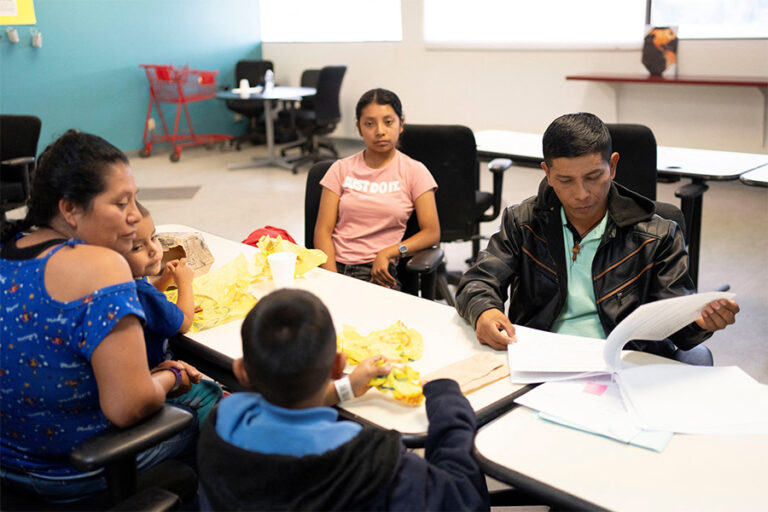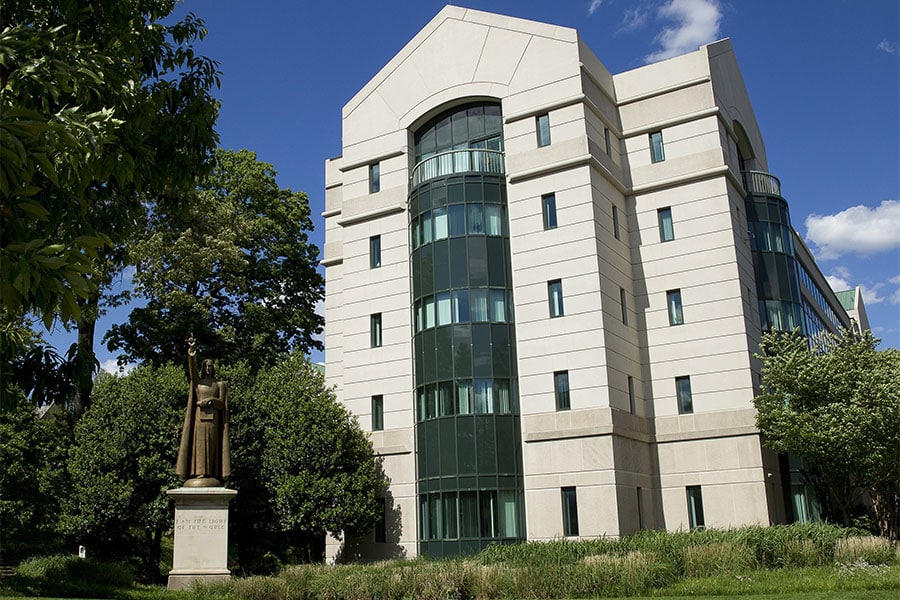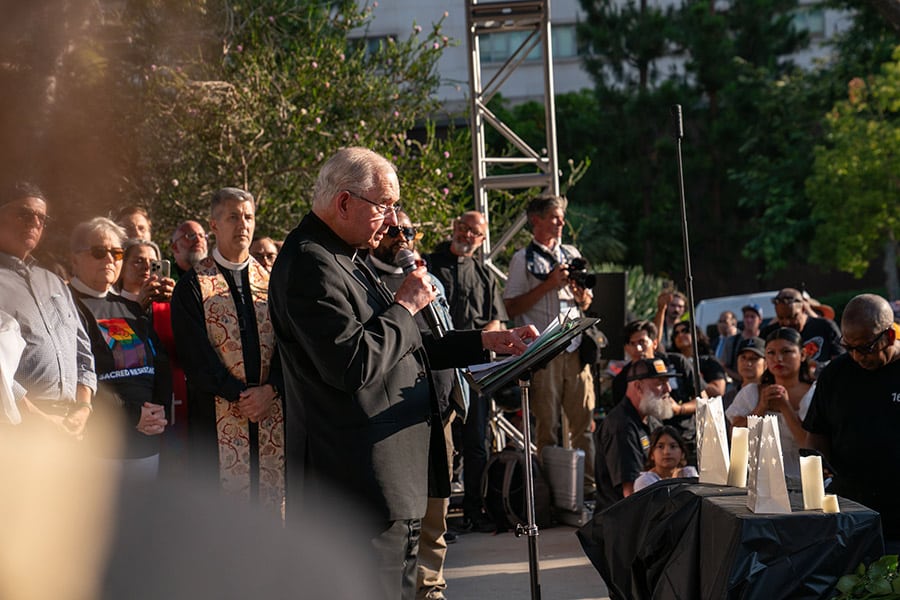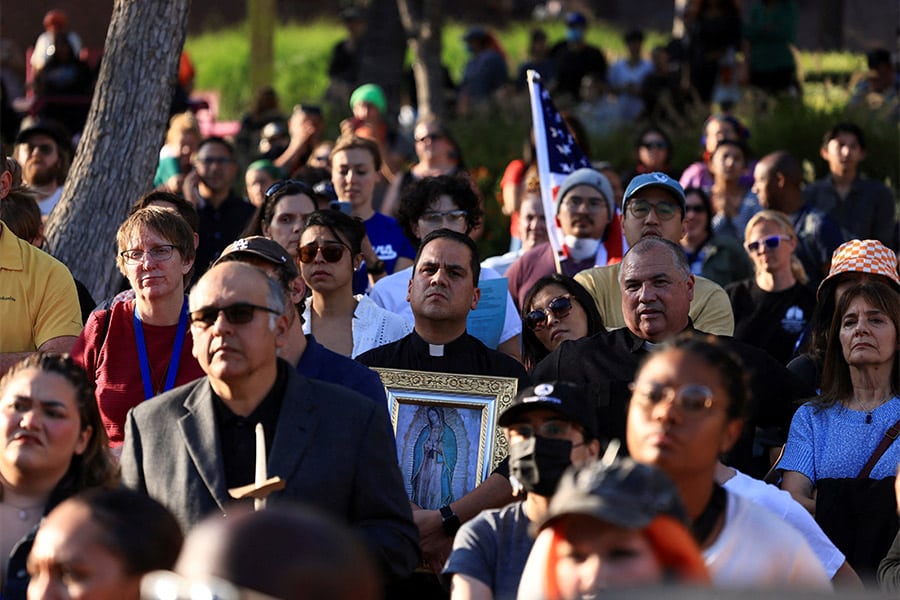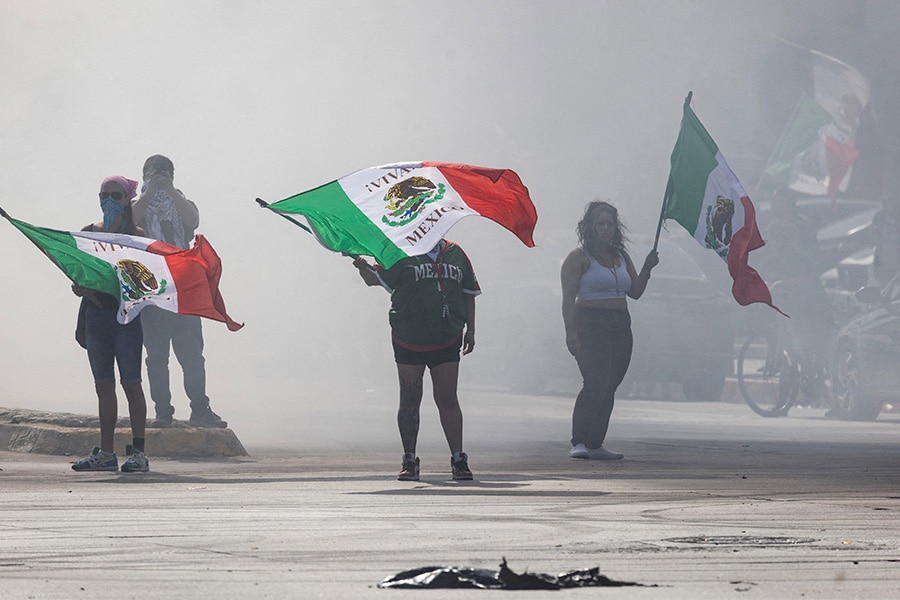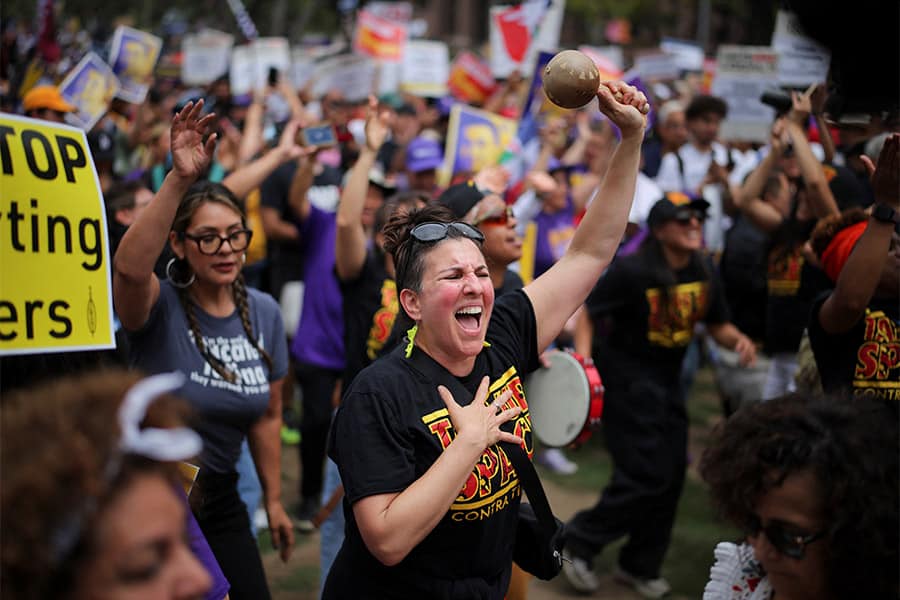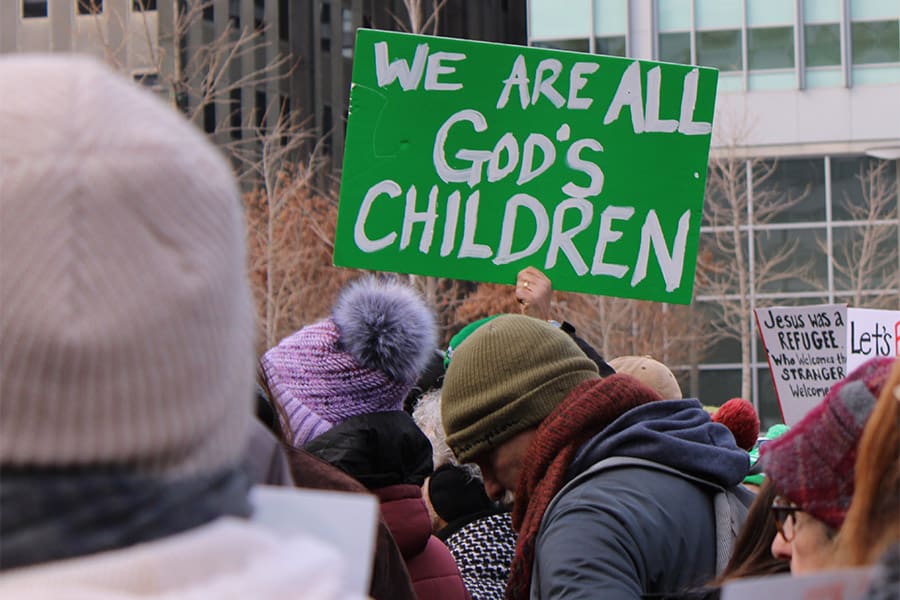Since President-elect Donald Trump’s Nov. 5 victory, most Americans expect him to tackle the issue of immigration within the first 100 days of reoccupying the Oval Office.
But will immigrants who registered with the federal government — hoping for a path to citizenship through programs such as Keeping Families Together (KFT), Consideration of Deferred Action for Childhood Arrivals (DACA), and Temporary Protected Status (TPS) — actually be the most vulnerable to deportation?
The answer may hinge both on whether the information provided to the Department of Homeland Security will be used for deportation purposes — and how quickly the Trump administration wants to deliver results on its mass deportation pledge.
When it comes to migrants’ information with DHS, in the past, “there has been a firewall between those who might have provided information because of a benefit they were seeking, and that information being used for enforcement purposes,” explained J. Kevin Appleby, senior director of International Migration Policy at the Center for Migration Studies of New York and former migration policy director for the U.S. Conference of Catholic Bishops.
This time, he said, “all bets are off. They’ll have access to that information, so they could use it to track potential beneficiaries.”
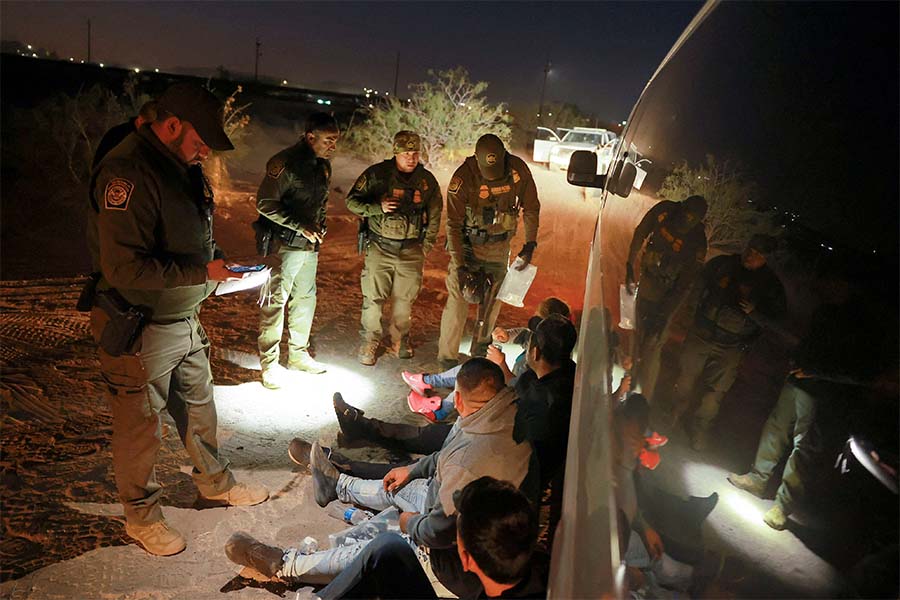
On Nov. 7, U.S. District Judge J. Campbell Barker of the Eastern District of Texas struck down the KFT program — rolled out in June — arguing the Biden administration exceeded its authority. KFT allowed U.S. citizens’ spouses and stepchildren, who lacked legal immigration status but lived in the U.S. for 10 years or more, to apply for permanent residency without first having to leave the country.
Approximately 500,000 spouses of U.S. citizens and 50,000 noncitizen children under 21 with a parent married to a U.S. citizen were eligible for the program.
DACA allows approximately 535,000 young immigrants brought to the U.S. without authorization as children, to seek temporary protection from deportation. The program, which began in 2012 under the Obama administration, also allows them to work legally. Trump attempted to end DACA in 2017, but the Supreme Court upheld the program in 2020.
TPS is a program for people from countries experiencing such extreme internal disruption that their deportation would be considered unsafe, or even life-threatening. TPS recipients have legal authorization to work and remain in the U.S. while their countries of origin retain that designation. The program garnered widespread media attention this fall after false reports of immigrants eating pets in Springfield, Ohio, exploded on social media during the U.S. presidential campaign. However, there was underlying friction between some of the town’s native residents and thousands of Haitian recipients of TPS legally living and working there.
Those migrants with legal immigration status are not necessarily safe, said Appleby.
“It’s basically an executive authority that provided them that legal status. So the new executive, he can revoke it,” Appleby said.
Trump and Vice President-elect JD Vance both strongly suggested on the campaign trail that TPS, which currently protects 1 million people, will be curtailed in their administration. Trump himself pledged in October to revoke TPS for the Haitians living in Springfield and who are credited with fueling the Rust Belt city’s economic revitalization.
Erin Corcoran, executive director of the Kroc Institute for International Peace Studies and a faculty fellow at the Klau Institute for Civil and Human Rights at the University of Notre Dame, shared Appleby’s concerns regarding Trump’s mass deportation plans for an estimated 11 million people.
During his first term, President Trump deported 1.5 million people — a number President Joe Biden matched in 2024 — compared to 4.8 million during President Barack Obama’s two terms, according to data tracked by the Migration Policy Institute.
“If they want to do it really quickly — if they want to effectuate it immediately — the people that are going to be the most at risk,” Corcoran said, “are the people that actually have come in contact already with the authorities. The people who don’t have actual status — but who have come in contact with DHS in some way — I think are at risk of deportation.”
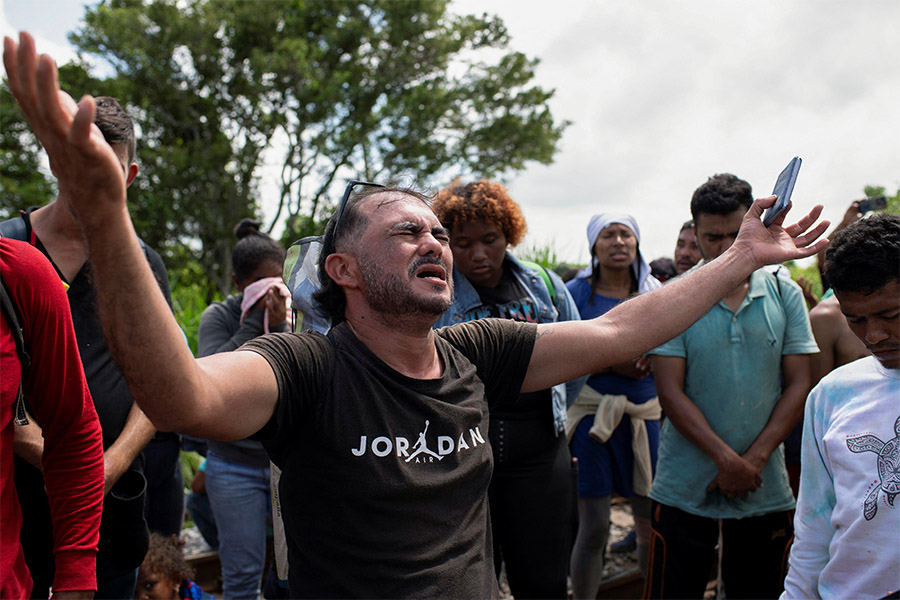
Which perhaps seems contradictory, Corcoran said.
“Those are in some ways the most sympathetic groups of people. From a moral perspective, from a humanitarian perspective, those are people who actually have done what they’re supposed to do,” she said. “They’ve come forward, they’ve given information; they’re in the system.”
And unlike most unauthorized immigrants, they’re easily located by authorities.
“These people who have registered — families — they have names; they have addresses,” Corcoran said.
Trump’s new “border czar” Tom Homan, who was named to the role Nov. 10 and will not require Senate confirmation, has repeatedly addressed the question of mass deportation’s effects on families. Homan was Trump’s acting director of Immigration and Customs Enforcement during the 2017-2018 “zero tolerance” era that witnessed children taken from their parents in the midst of illegal border crossings.
In response to whether mass deportation can be conducted without separating families, Homan told CBS’ “60 Minutes” in October, “Of course there is — families can be deported together.”
On Dec. 26, Homan told multiple media outlets that the incoming Trump administration is considering open-air family detention centers for holding and deporting families. He said parents facing deportation will have to decide whether their U.S.-born children will come with them, or remain in the U.S. with a relative. He offered the following justification: “You knew you were in the country illegally and chose to have a child. So you put your family in that position.”
Pedro Alemán Perfecto, a policy advocate at the Catholic Legal Immigration Network Inc., also known as CLINIC, acknowledged Homan’s pledge to come after migrants with greater force. But he kept a measured outlook, noting that migrant advocates have also been preparing.
“It’s not about panicking the community or individuals. It’s being cautious — but vigilant — about this,” he said. “That’s what our community and vulnerable immigrant communities are feeling right now: They’re looking at who can be leading us; who can be working with us. And it’s knowing what’s going to happen in the next four years for them.”
Advocacy tactics, said Alemán, will likely need to adapt.
“At CLINIC, we strive to put a lot of information out there in the community, to combat misinformation and disinformation,” he said. “For us, it’s doing our research; doing our advocacy; knowing who we can trust with different partners — and then reaching out to impacted individuals on the ground.”
The destination of mass deportees also remains an open question. They may not even end up in their countries of origin.
NBC News reported Dec. 5 the incoming Trump administration is assembling a list of potential countries to ship migrants to if their home nations refuse to accept them. The Bahamas stated it had “reviewed and firmly rejected” the Trump plan, while NBC’s sources said other countries under consideration include Turks and Caicos, Panama, and Grenada.
In an NBC “Meet the Press” interview broadcast Dec. 8, Trump echoed many of Homan’s comments, noting his deportation agenda will focus on those with criminal histories — while also vaguely referring to “other people outside of criminals.”
He also reinforced his pledge to end birthright citizenship, while saying he was open to working with Democrats to devise a plan concerning “the Dreamers,” or DACA recipients.
At the U.S. bishops’ general meeting in November, Bishop Mark J. Seitz of El Paso, Texas, the bishops’ migration committee chair, said the bishops are “waiting to see just exactly what takes shape.” But he promised they will “raise our voice loudly,” if Trump’s deportation rhetoric becomes a reality.
Reports indicate not only that the incoming Trump administration’s mass deportation policy will be ready to launch Day 1 — it will run headlong into the life of the church.
On Dec. 11, NBC News reported Trump’s incoming administration plans to rescind a long-standing “sensitive locations policy” previously prohibiting the arrest of unauthorized migrants — except under certain circumstances — at churches, schools, and hospitals.
Appleby said the U.S. bishops are facing a critical moment that will “test the resolve of the church.” While statements of solidarity are helpful, Appleby said plans for direct action — including direct support and legal assistance to immigrant families — are required.
“If Trump fully implements this,” Appleby predicted, “it’s going to impact the life of the church. You’re going to have ICE agents outside the Mass door. You certainly will see some immigrants seek sanctuary in their parishes. And it will put the bishops in a difficult position with the government.”
“We have a pope who is a strong defender of migrants,” Appleby said. “And hopefully, the U.S. church will reflect that in their response to this massive deportation plan.”
What does the church teach about immigration and deportation?
The Catechism of the Catholic Church instructs, “The more prosperous nations are obliged, to the extent they are able, to welcome the foreigner in search of the security and the means of livelihood which he cannot find in his country of origin.”
At the same time, the church has also made clear human laws are also subject to divine limits. St. John Paul II’s 1993 encyclical “Veritatis Splendor” (“Splendor of Truth”) and 1995 encyclical “Evangelium Vitae” (“The Gospel of Life”) both quote the Second Vatican Council’s teaching in “Gaudium et Spes,” the Pastoral Constitution on the Church in the Modern World, which names “deportation” among various specific acts “offensive to human dignity” that “are a disgrace, and so long as they infect human civilization they contaminate those who inflict them more than those who suffer injustice, and they are a negation of the honor due to the Creator.”
The late pontiff underscored their moral severity in “Veritatis Splendor” by calling them examples of “intrinsic evil,” explaining that, no matter the motives, these acts are “not capable of being ordered to God and to the good of the person.”
Read More Immigration & Migration
Copyright © 2025 OSV News

